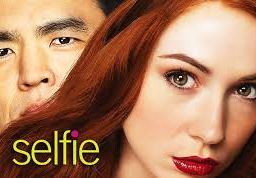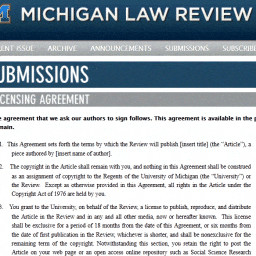by Raizel Liebler and Keidra Chaney
We recently published an article in Pace Law Review, Here We Are Now, Entertain Us: Defining the Line Between Personal and Professional Context on Social Media, 35 Pace L. Rev. 398 (2014). This article took us years (seriously, years!) and we are grateful for all that helped make the article possible, especially those who gave comments at the academic presentations we gave and all of the social media professionals caught in the midst of trying to have a personal life, while their jobs attempt to make everything bizness.
In this article, we ask the question: should the job of drawing the line between personal and professional speech lie with the individual? Should the divide be clearly determined by the functionality of the social media platform or by third party processes and procedures such as organizational social media policies or by state/federal law?
Due to a combination of evolving user activity and frequent updates to functionality and user features, social media tools blur the line of whether a speaker is perceived as speaking to a specific and presumed private audience, a public expression of one’s own personal views, or a representative viewpoint of an entire institution. However, the intent of the speaker is frequently lost to the wide and diverse breadth of social media audiences or obscured due to the workings of the specific social media platform being used.
This issue of personal versus professional speech becomes increasingly relevant not only to public figures such as celebrities or athletes, but to anyone whose online or social media presence is directly or indirectly connected to a larger institution, such as a workplace or educational institution. As social media platforms and online culture encourage “transparency” and open sharing of personal details online, it is not always easy to determine when personal versus professional viewpoint is being represented via social media channels. When an individual shares a controversial opinion outside of work, it is not necessarily representative of their workplace, yet may be perceived as such. When does an employer have the right to monitor or dictate an individual’s online communications?
The line is difficult for everyone to walk – from the perspective of both employers and employees, considering that employees generally want to remain employed and employers generally want to minimize anything negative reflecting back on the employer. In this article, we discuss the tenuous balancing act between the interests of a brand/employer with those of the individual/employee regarding social media communications.
We illustrate this tension through the example of the regulation of student-athletes within institutions of higher education, considering they now might be considered to be employees. However, we conclude that the challenges in developing law and policy around social media speech are due to a number of issues, including the rapid pace of development of social media platforms. Social media gives greater access into the lives of individuals due to emerging social norms that encourage open sharing of personal information online. At the same time, social media tools are used by companies to promote a curated brand identity for marketing purposes. Social media policies created both internally by employers and those established by law and policymakers focus almost exclusively on the interests of companies regarding social media, rather than the individual interests of those who participate on social media to connect with peers.
The present approach that federal financial regulators take regarding social media is the closest to a well-balanced test as presently available – in this test, whether an employer can take action against an employee is grounded on whether a statement could be seen as directed by or an official statement of the employer. We think a national standard following this overall approach would best balance the interests of both employers and employees.





